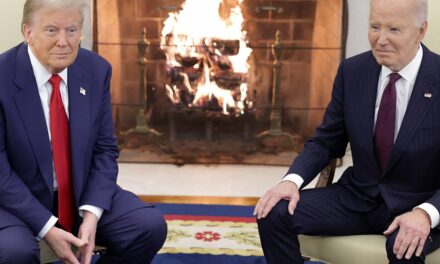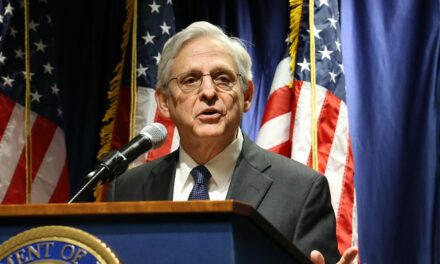We support our Publishers and Content Creators. You can view this story on their website by CLICKING HERE.
China and the U.S. signed a science cooperation agreement this month, an agreement that has been renewed every five years since 1979—yet one expert urges that this time, it’s “inexcusable.”
Many conservatives argue that this decision should have been left to the incoming Trump administration, as the inauguration is now only weeks away. However, that is far from the only objection to the agreement renewal.
Considering the Chinese Communist Party’s role in the COVID-19 pandemic and its “systematic cover-up,” experts in the field of U.S.-China relations are concerned that the CCP will take advantage of the agreement.
“It’s inexcusable that we would sign any kind of finance pact with them—or any kind of agreement—until they were held accountable for their role [in the COVID-19 pandemic].” Erin Walsh, a senior research fellow for national security in The Heritage Foundation’s Asian Studies Center, told The Daily Signal.
Walsh noted that though then-President Donald Trump did renew the agreement back in 2018, that was before the COVID-19 pandemic.
The State Department did adjust the pact, officially known as the U.S.-PRC Science and Technology Agreement. These amendments have “modernized and strengthened” the agreement with the goal of “transparency and data reciprocity,” according to its statement, released on Dec. 13.
Despite these adjustments, conservatives remain apprehensive.
A 2018 White House report found that China stole “between $180 billion and $540 billion annually” in intellectual property. Walsh said that this is “an unprecedented amount of stolen research and IP theft.”
The Biden administration requested two extensions before finally renewing the Science and Technology Agreement just weeks before Trump’s inauguration.
Rep. John Moolenaar, R-Mich., and 13 other House members agreed that renewing the pact now is a “clear attempt to tie the hands” of the incoming Trump administration, which could abandon the agreement or negotiate different adjustments. The committee cited concerns that science and technology cooperation served to strengthen China’s military.
Amendments made to the Science and Technology Agreement state that only “basic research” would be shared across China and the U.S., though critics argue that the CCP is an “untrustworthy research partner.”
In 2019, China removed American access to U.S.-funded coronavirus work at the Wuhan Institute of Virology. Some intelligence agencies consider the institute to be the source of the COVID-19 pandemic.
Walsh noted that John Ratcliffe, Trump’s selection for CIA director, published a bipartisan and comprehensive report on China with The Heritage Foundation. The report’s goal was to “calculate the human toll and economic damages caused by the Chinese government, and to make recommendations to hold China accountable.”
Experts like Walsh, as well as many Republicans set to serve in the next administration, prioritize CCP accountability over any benefit the agreement could offer.
“There’s a huge preponderance of people … that are involved with IP theft and that are threatening our economy and way of living and our defense systems and challenging our intelligence systems,” Walsh said. “I think there’s a need for the United States to take a closer look at where that’s coming from, and it’s coming from the CCP.”

 Conservative
Conservative  Search
Search Trending
Trending Current News
Current News 





